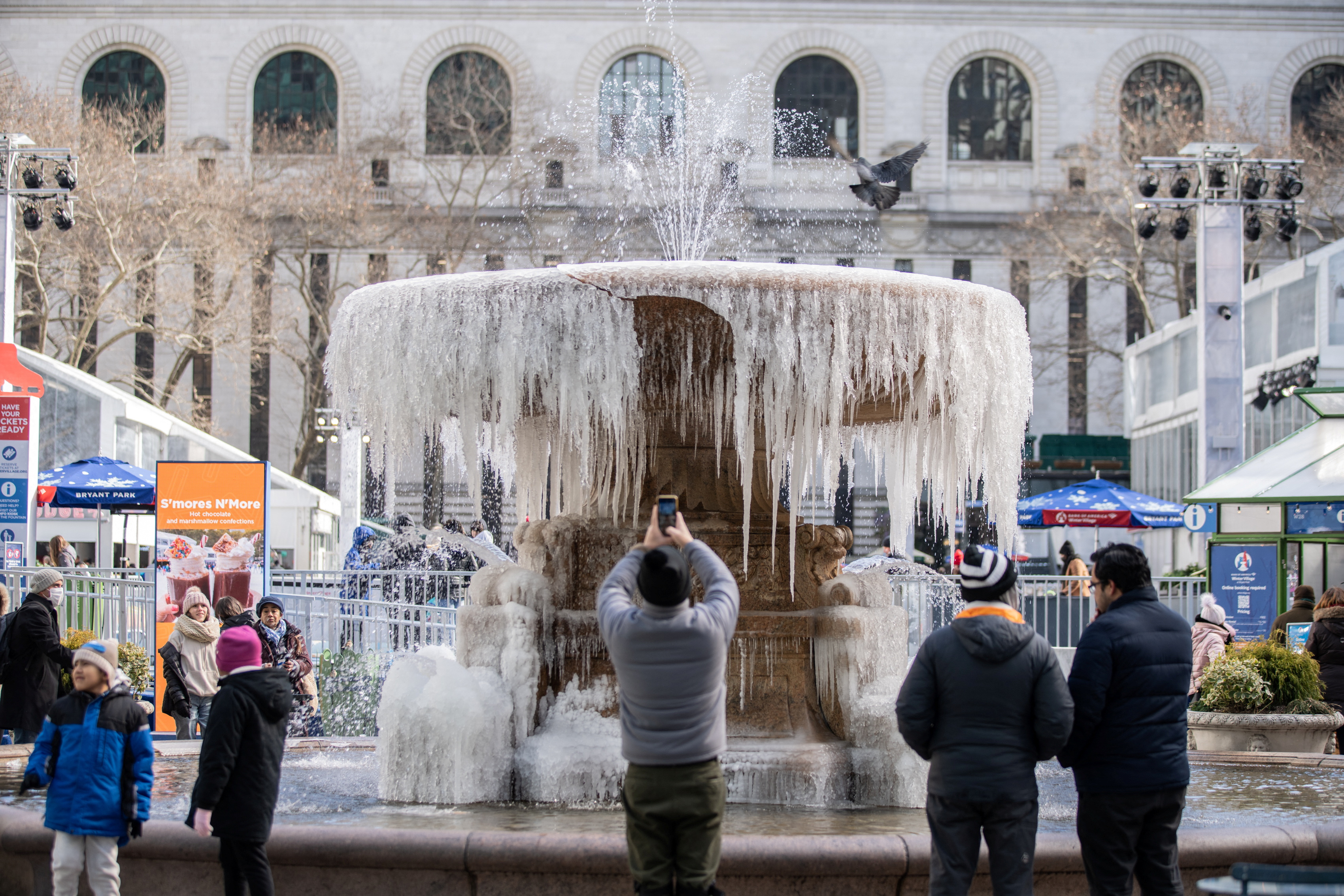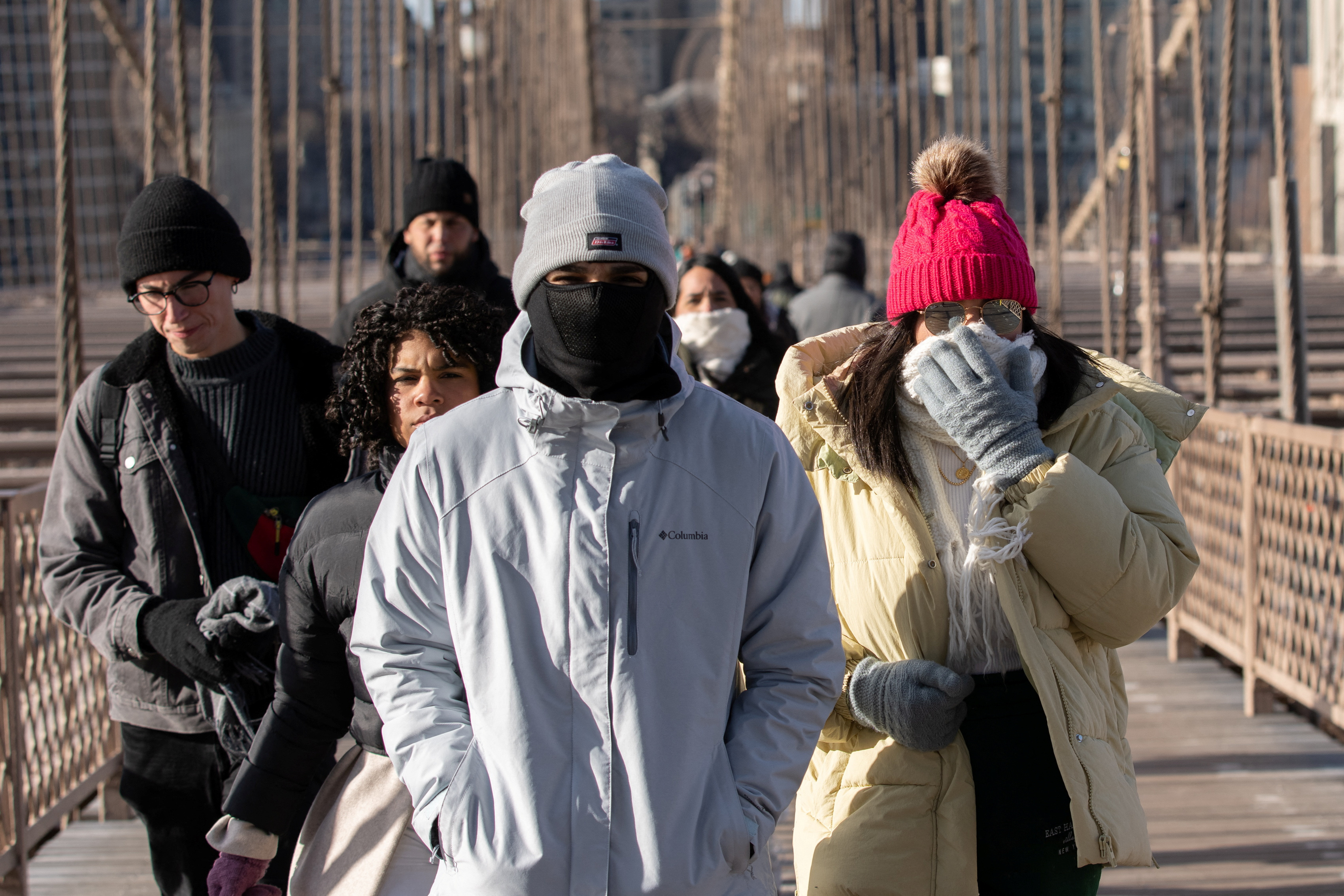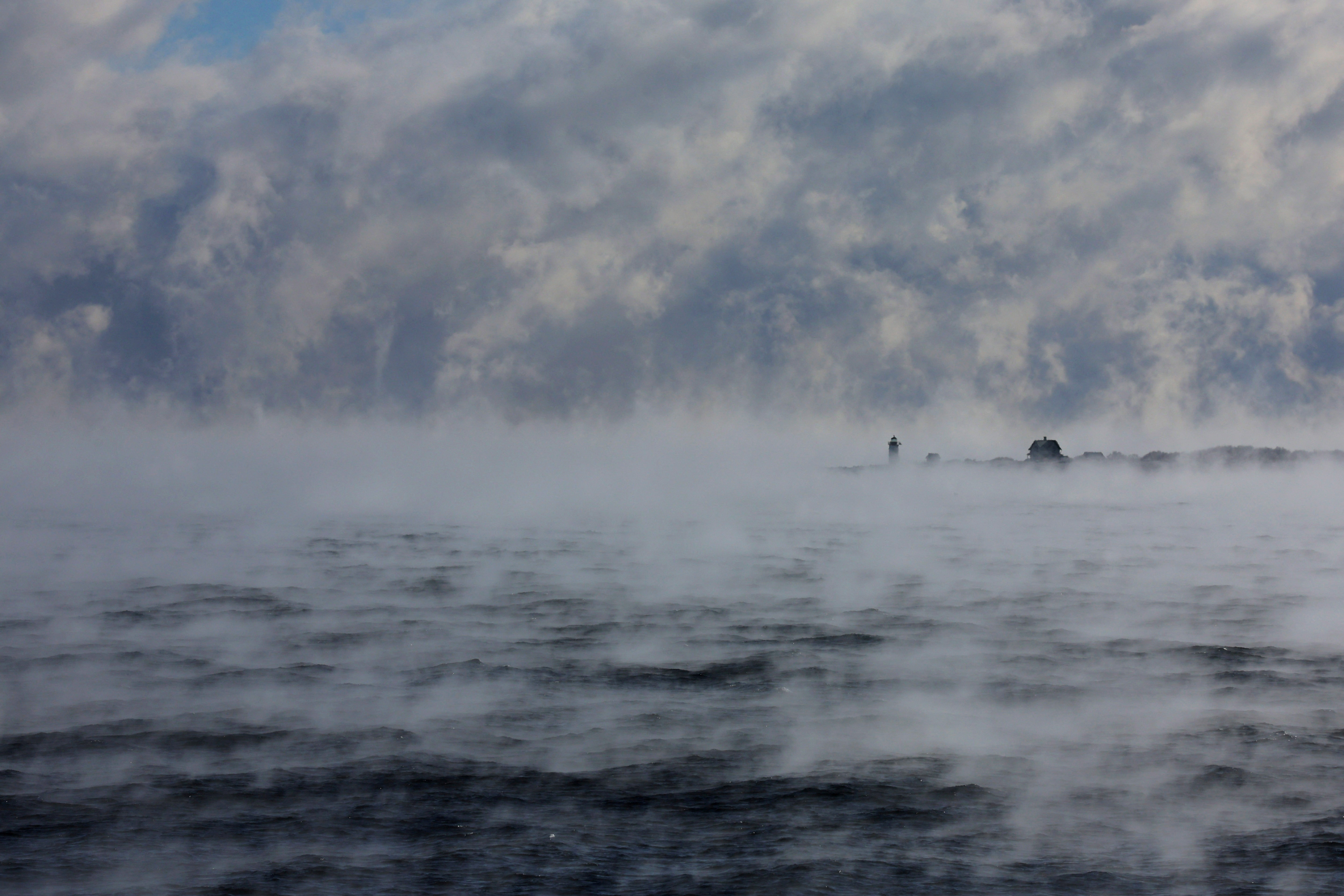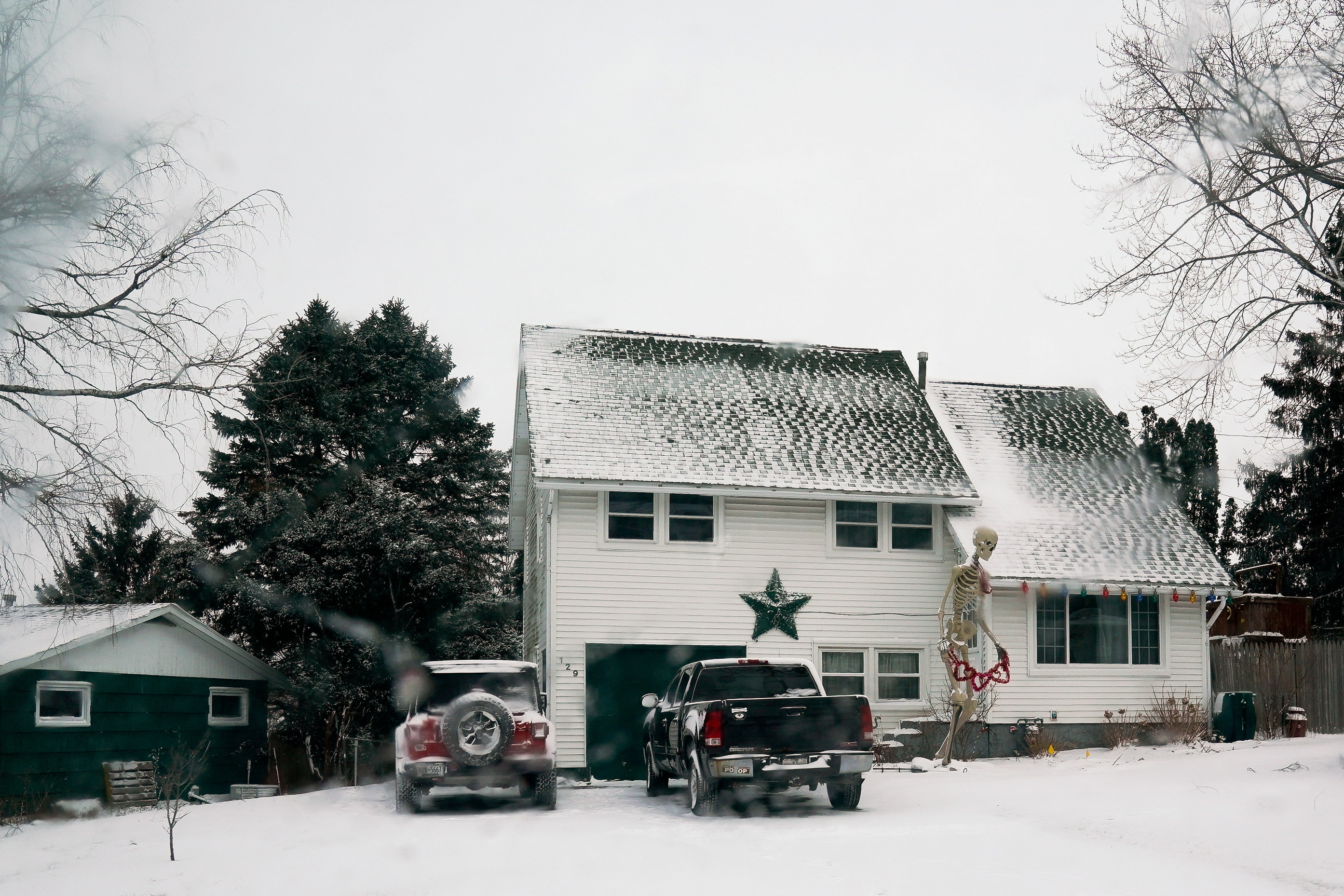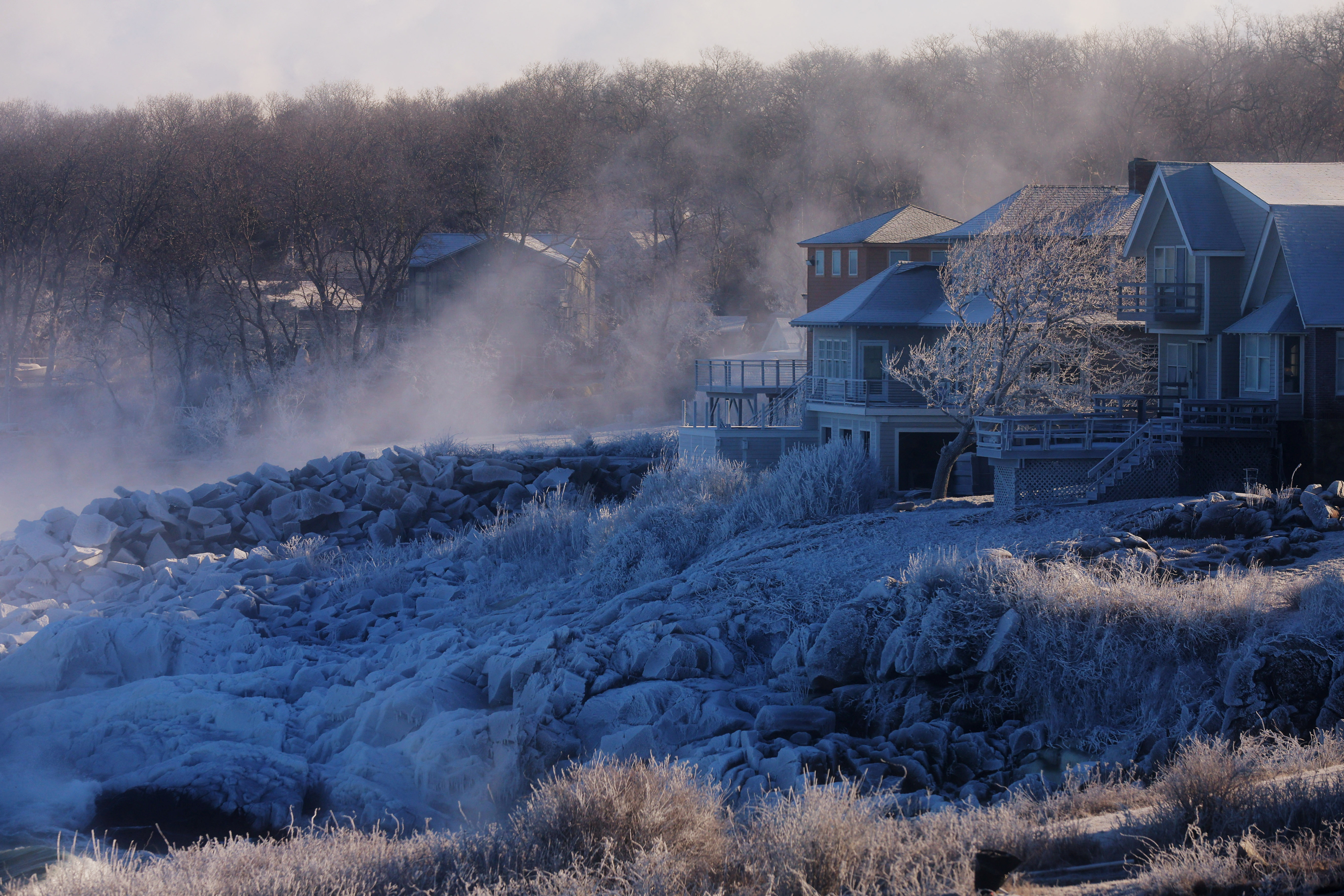A dangerous combination of record-setting cold temperatures and powerful winds buffeted the northeastern United States on Saturday, creating life-threatening conditions and causing the death of an infant in Massachusetts.
New Hampshire’s Mount Washington overnight recorded a wind chill – a measure of how the combined effect of air and wind feels to the skin – of minus 108 degrees Fahrenheit (-78°Celsius), which appeared to be the lowest ever in the United States. The air temperature at the peak reached minus 47 degrees F (-44 C), with winds gusting near 100 miles per hour (160 kilometers per hour), according to the Mount Washington Observatory.
The high winds brought a tree down onto a car in Southwick, Massachusetts, the Hampden district attorney said in a statement, crushing the vehicle and killing an infant passenger. The driver was transported to a hospital with serious injuries.
In Boston, where officials closed down the public school system on Friday due to the impending freeze, the low temperature hit minus 10 degrees F (-23 C), shattering the day’s record set more than a century ago, the NWS said. In Providence, Rhode Island, the mercury dropped to minus 9 degrees F (-23 C), well below the previous all-time low of minus 2 degrees F (-19 C), set in 1918.
The arctic blast flowing into the United States from eastern Canada brought record lows to Albany, New York; Augusta, Maine; Rochester, New York; and Worcester, Massachusetts, among other places, the NWS said.
The NWS office in Caribou, Maine, said it had gotten reports of “frostquakes” – tremors that feel like earthquakes but are caused by the soil cracking suddenly in the cold – as well as trees splitting open, likely due to sap freezing inside the trunks.
Several cities took emergency measures to aid residents, including opening warming centers and conducting outreach to ensure homeless people were sheltered from the brutal cold.
In Boston, Pine Street Inn, the largest provider of homeless services in New England, doubled the number of vans canvassing the city’s streets on Friday and Saturday, said Barbara Trevisan, a spokeswoman.
“They started going out early this week to warn people that the weather was going to be very extreme,” she said. “The goal last night was just to keep people alive and safe.”
Massachusetts Governor Maura Healey ordered South Station, the city’s main rail terminal, to remain open overnight to serve as an emergency shelter. About 50 to 60 homeless people stayed in the station overnight, Trevisan estimated.
Many ski areas limited operations due to the temperatures. Jay Peak, a ski mountain in northern Vermont near the Canadian border, closed down entirely on Friday and Saturday, citing the danger to staff and skiers.
The frigid weather was expected to be short-lived, with temperatures forecast to be significantly higher on Sunday. The high temperature in Boston on Sunday will approach 47 degrees F (8.3 C), the NWS said.
Related Galleries:
